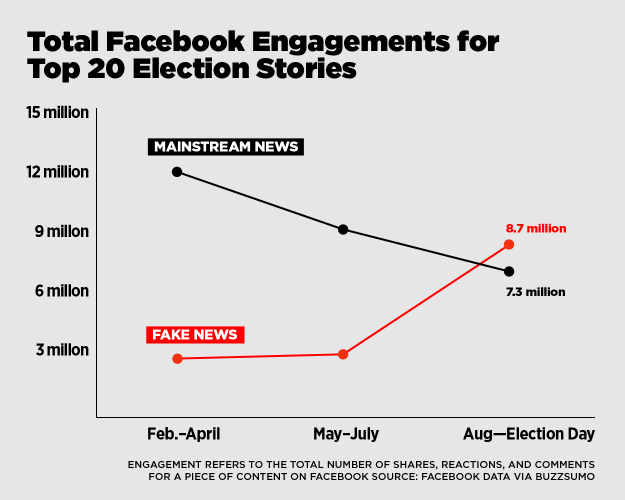Media
Facebook’s Algorithm Has Unprecedented Power. Here’s How We Need to Respond
As I write this, a single algorithm controls the flow of 40 percent of all web traffic to publisher sites. It’s the main source of news delivery to 62 percent of all American adults. And chances are that it played a big role in whether you read this article at all.
I’m talking, of course, about the Facebook algorithm—the most mysterious part of Facebook’s all-powerful platform. The algorithm has come under extreme scrutiny in recent weeks for two reasons: its role in spreading fake news leading up to the election, and the filter bubbles it helped create among people with similar political ideologies.
You’ve probably heard about the fake news controversy and experienced the filter bubble. A November BuzzFeed analysis found that the top 20 fake news stories about the election cycle were shared 1.4 million times more than the top 20 real news stories about the election. That’s a terrifying stat, and one that contradicts Mark Zuckerberg’s claim that fake news accounts for less than one percent of all content on Facebook over the last few months.

As a journalist, I’ve written extensively about Facebook’s algorithm for the past few years both on The Content Strategist and Fast Company. It’s hard not to be obsessed with the most powerful gatekeeper of digital content. Recently, I’ve seen many reporters come to share my obsession. BuzzFeed provided that fantastic analysis mentioned above. The Wall Street Journal’s incredible “Blue Feed, Red Feed” interactive experience showed the vastly different information Facebook shows based on your political affiliation. Last week, the Tow-Knight Center for Entrepreneurial Journalism published an excellent report, “Algorithm Accountability Reporting: On the Investigation of Black Boxes” that called for journalists to do a better job analyzing and scrutinizing Facebook’s algorithm.
This movement is exactly what we need. Journalists can no longer view Facebook’s algorithm as a magical entity that we’re going to ignore, because we have a degree in the humanities instead of computer science. I went on CNBC last week to discuss this issue in detail and laid out three steps that the media industry needs to take:
- Understand that Facebook’s algorithm is the most powerful entity in all of media, and invest reporting resources accordingly. Treat it as its own beat. Devote a reporter to learning it inside and out and tracking the implications of every change.
- Partner with social tech companies like NewsWhip, Spredfast, and Parse.ly that can provide instant data on what content gets shared and prioritized on Facebook.
- Challenge Facebook’s position that it isn’t a media company and pressure it to adopt editorial responsibility.
Check it out here, and tweet me @joelazauskas to share your thoughts.
Image by Zwiebackesser / ShutterstockGet better at your job right now.
Read our monthly newsletter to master content marketing. It’s made for marketers, creators, and everyone in between.




